-
-
-
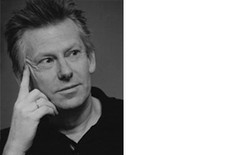
- Name
- Prof. ir. Kas Oosterhuis
- Position
- Director/Head of program
- K.Oosterhuis AA tudelft DDD nl
-
-
Born in 1951 in Amersfoort Kas Oosterhuis studied architecture at the Delft University of Technology. In 1987-1988 he taught as unit master at the AA in London and worked/lived one year in the former studio of Theo van Doesburg in Paris together with visual artist Ilona Lenard. Their design studio is in 2004 renamed into ONL [Oosterhuis_Lenard]. As from 2007 Oosterhuis is a registered architect in Hungary, executing as General Designer the CET project. Since 2000, Oosterhuis has been appointed professor of digital design methods at the Delft University of Technology and he is currently leading a staff of twenty researchers at Hyperbody, the knowledge centre for Non-Standard and Interactive Architecture. Oosterhuis is Director of the ProtoSpace Laboratory. He is member of the Dutch Building Information Council and has been a Member of the Board of Witte de With Center of Contemporary Art in Rotterdam and of the VCA (Computerusers Architectural Offices) until 1989. He has been the co-founder of the Attila Foundation, responsible for the groundbreaking Sculpture City event in 1994 and the ParaSite weblounge in 1996. He has lectured worldwide at numerous universities, academies and international conferences since 1990. Oosterhuis has initiated two GameSetandMatch (GSM) conferences at the Delft University of Technology on the subjects multiplayer game design, file to factory design and build methods and open source communication in the evolutionary development of the 3D reference model. Award winning building designs include the Saltwaterpavilion at Neeltje Jans (Gold Award 1997 for innovative recreational projects, Zeeuwse Architectuurprijs 1998, nomination Mies van der Rohe Award 1998), the Garbagetransferstation Elhorst/Vloedbelt in Zenderen (Business Week/Architectural Record Award 1998, OCE-BNA Award for Industrial Architecture 1996, Aluminium Design Award 1997) and the Hessing Cockpit in Acoustic Barrier in Utrecht (National Steel Award 2006, Glass Award 2006, Dutch Design Award for Public Space 2006, nomination Mies van der Rohe Award 2008, nomination Golden Pyramid 2006).
-
-
-
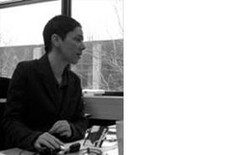
- Name
- Dr. H.H. (Henriette) Bier
- Position
- Associate Professor, Education and Research manager Hyperbody
- h.h.bier AA tudelft DDD nl
-
-
After graduating in architecture (1998) from the University of Karlsruhe in Germany, Henriette Bier has worked with Morphosis (1999-2001) on internationally relevant projects in the US and Europe. She has taught computer-based architectural design (2002-2003) at universities in Austria, Germany and the Netherlands. Since 2004 she teaches and researches at TU Delft; her research focuses not only on analysis and critical assessment of digital technologies in architecture, but also reflects evaluation and classification of digitally-driven architecture through procedural and object-oriented studies. It defines methodologies of digital design, which incorporate Intelligent Computer-based Systems to not only support the design process but also actuate architecture. She initiated and coordinated (2005-07) the workshop and lecture series on Digital Design and Fabrication within DSD (Delft School for Design) with invited guests from MIT and ETHZ and finalized (2008) her PhD; results of her research have been published in books, journals and conference proceedings. She regularly lectures in Europe and US as well as leads EU-funded pro-jects within Hyperbody and Border Conditions at TU Delft.
-
-
-
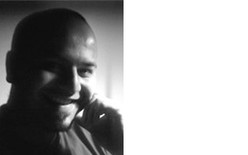
- Name
- Dr. N.M. (Nimish) Biloria
- Position
- Assistant Professor, Education and Research manager Hyperbody
- n.m.biloria AA tudelft DDD nl
-
-
Dr. Nimish Biloria is an Architect and an Assistant Professor at Hyperbody, Faculty of Architecture, TU Delft, The Netherlands. After being involved with investigating the inter-relation of Media and Architecture throughout his formative educational years at CEPT, Ahmadabad, India, he furthered his interests in the inter-disciplinary realm at the Architectural Association, London, UK, where he specialized in the field of Emergent Technologies and Design. He further attained a Doctorate at the TU Delft, Netherlands, with a focus on developing real time adaptive environments. He continues experimenting with the idea of formulating intelligence aided relational networks for the generation of performative morphologies.
Dr. Biloria apart from his teaching initiatives at Hyperbody is also the Research Manager of Hyperbody and is involved with developing computationally enhanced performative & sustainable architectural and urban design solutions. He has conducted various seminars for the same and is a proponent of systemic design and bio-inspired performative design solutions. He, as a part of such research and design investigations specifically seeks a synergistic merger of the fields of computation, material systems, sensing technologies, environmental dynamics and social demographics. Dr. Biloria has lectured at prestigious institutes globally. He has also presented and published his research and design deductions in numerous international design conferences and magazines and has been a proponent for exchanging design-informatics oriented knowledge globally.
-
-
-
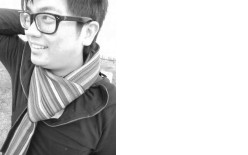
- Name
- Jia-Rey Chang
- Position
- PhD candidate
- archgary AA gmail DDD com
-
-
Jia-Rey Chang(Gary) was born in Taiwan. After he got his M.Arch degree in Architecture and Urban Design Department, UCLA, under the direction of Neil Denari in 2009, he came back to his Alma mater, architecture department in TamKang University, Taiwan, doing research on interactive and parametric architecture. In 2010, he established "P&A LAB"(Programming AND Architecture LAB) exploring the new relationship between the programming and architecture. As the director of P&A LAB (http://pandalabccc.blogspot.com), he also worked in the Architecture Department of National Taipei University of Technology as a part-time lecturer.
In 2011, He joined in Hyperbody LAB to further develop his preliminary study on "SmartGeometry", which is a smart geometry system by assembling smart architectural components with intelligence, kinetic energy, efficiency, and capabilities of self-construction and self-reaction from the computer interface, digital fabrication to the architectural construction.
-
-
-
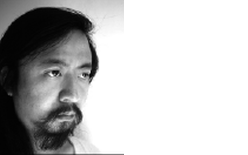
- Name
- Alexander Liu Cheng
- Position
- PhD candidate
- alejandro.liu.cheng AA gmail DDD com
-
-
Alexander Liu Cheng is a Ph.D. candidate at Hyperbody, TU Delft. His work on intelligent built-environments situates Cyber-Physical Systems within the Adaptive Architecture discourse. Alex obtained a B.Sc. in Computer Science from the New York Institute of Technology; a professional M.Arch. from The University of British Columbia; and a post-professional M.Sc. in Advanced Construction and Building Technology-Automation, Robotics, Services from Technische Universitat Munchen. In addition to his academic pursuits, Alex previously worked as Architectural Designer at GRAFT Architects.
-
-
-
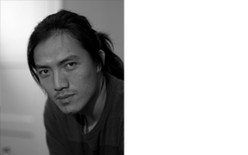
- Name
- ir. Han Feng
- Position
- PhD candidate
- H.Feng AA tudelft DDD nl
-
-
Han Feng is an architect from China. After graduating from architecture department of Harbin Institute of Technology 2002, he has been working with L.A. International Ltd in Beijing. He obtained his Master of Science degree in architecture at Delft University of Technology, Netherlands (2003-2005). In 2006 he has been working with several design companies in Netherlands, including ONL [Oosterhuis_Lenard], De werff architectuur, ANT Architects and Studio 015. He is currently working on research within Hyperbody, TU Delft aiming at enriching architectural design with ideas and methods found in Quantum mechanics.
-
-
-
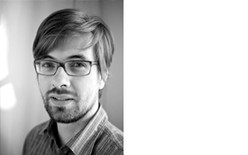
- Name
- J.D. (Jelle) Feringa
- Position
- PhD candidate
- J.D.Feringa AA tudelft DDD nl
-
-
Jelle Feringa is currently writing a PhD thesis, titled Design-by-Simulation, exploring the potential of simulation for architectural conception, at the Hyperbody Research Group, TU Delft. Jelle has taught and lectured at the ESA, Paris-Malaquias, ETH, and TU Delft. He is a founding partner in EZCT Architecture & Design Research. Projects have been exhibited at the Mori Art Museum (Tokyo, 2004), Archilab (Orleans, 2004), Barbican Gallery (London, 2006), Design Miami/Basel (Miami, 2007), Pompidou Center (Paris, 2007), Maison Rouge (Paris, 2007), Architectural Association (London, 2007), ScriptedByPurpose (Philadelphia, 2007), International Biennial of Sevilla (Sevilla, 2008), Vivid design gallery (Rotterdam, 2009). Early research results have recently been exhibited at the transNatural (Amsterdam, 2010) exposition. The work of EZCT is part of the permanent collection of the Pompidou Center and the FRAC Orleans collection. In 2007 the office won the Seroussi Pavilion. Jelle's work is focused on the close coupling of advanced simulation methods with evolutionary computing methods. His academic research work is focused on the development of generative design representations. For his research work, Jelle relies on Open Source software. Working together with Thomas Paviot, Jelle has been driving the development of an open source CAD framework, PythonOCC a CAD/CAE/PLM development framework for the python programming language.
-
-
-
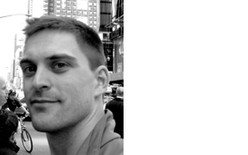
- Name
- ir. H.C. (Christian) Friedrich
- Position
- PhD candidate
- h.c.friedrich AA tudelft DDD nl
-
-
Christian Friedrich was born in Germany. After studying Physics and Philosophy in Berlin and completing an architectural engineering degree at Hanzehogeschool Groningen, he finished his graduate education (MSc) in architecture at Delft University of Technology, Netherlands. He is the co-founder of the media artist collective Ezthetics. He has been associated with Hyperbody for four years, as student assistant, master student and researcher. His work with the HRG includes teaching Virtools courses, conference lectures and developing the protoSPACE group design environment. During the last four years, he was involved in several projects of the architectural office of Kas Oosterhuis and Ilona Lenard, ONL. He is currently developing his PhD research project in which he intends to describe and actualize the architectural singularity: a point at which the architectural process loop is executed in real-time and shifts from a phased process into a behavioral network, in effect reshaping architectural praxis.
-
-
-
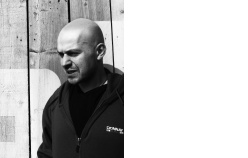
- Name
- Alireza Hakak
- Position
- PhD candidate
- A.MahdizadehHakak AA tudelft DDD nl
-
-
Alireza Hakak is an architect from Iran. After obtaining Master of Science in architecture from Art & Architecture faculty of Azad University of Tehran in 2005, he has worked as freelance architect for several consulting Engineers in Tehran. He had been a lecturer in Azad University (2007-2008) and member of the board of "Architecture and Urbanism (A/U)" magazine in Iran. Following his interest in Visionary Architecture and Virtual Environments he joined Hyperbody, a contemporary research and design group at the TU Delft in 2011 as a PhD researcher. The on-going research is focused on understanding the effects of information frameworks driving real-time interactive environments within the virtual domain and the emergent qualitative and quantitative data sets which they embody as a knowledge model for enhancing creativity within contemporary design processes. Emphasizing on real-time interactive, immersive Virtual environments, within which an emergent spatial pattern can dynamically evolve in time with respect to user interactions, a variety of spatially intriguing concepts such as: Multiple dimensions, Dematerialization, Infinite depth, Continuous change, Multiple scales etc. can be experimented with. These concepts and their visualization can render cognition and perception based studies a new meaning.
-
-
-
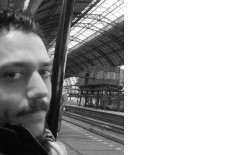
- Name
- Sina Mostafavi
- Position
- PhD candidate
- s.mostafavi AA tudelft DDD nl
-
-
Sina Mostafavi is a practising architect, researcher, and educator with expertise in computational design and robotics in architecture. He is a PhD researcher at TU Delft, where he has focused since 2011 on novel informed design to robotic production systems. He practiced architecture since 2007 and is founding partner, co-owner, and lead designer at, Transformative Architecture Office (TAO), a firm that offers consultancy for innovative design solutions and state-of-the-art construction processes. He has been teaching studios at TU Delft and leading international workshops on computational design and robotically supported processes that facilitate integrated, materially informed, and performance-driven design processes from conception to production. He holds a master degree in architecture from the University of Tehran and he is currently senior researcher in the Robotic Building team at Hyperbody, TU Delft, Netherlands. Results of his works have been internationally presented and published in journals and peer-reviewed conference proceedings.
-
-
-
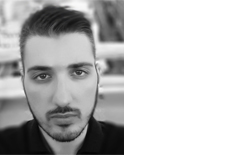
- Name
- Achilleas Psyllidis
- Position
- PhD candidate
- a.psyllidis AA tudelft DDD nl
-
-
Achilleas Psyllidis is an Architect, PhD Researcher and Lecturer at Hyperbody, Faculty of Architecture and the Built Environment, Delft University of Technology (TU Delft). He is specifically interested in the application of Semantic Web technologies, sensor networks, data science, and knowledge representation techniques to city analytics and planning. His research focuses on Computational Urban Science and particularly the incorporation of Urban Informatics, semantic integration and data science methods in the study and analysis of urban dynamics. In this context, he has developed computational systems and tools that leverage the potential of linked open data from heterogeneous sources and allow cross-sector collaboration among various city stakeholders. Together with the Delft Social Data Science Lab he engages with the development of a web-based urban platform that supports the analysis, modeling and semantic integration of large-scale datasets for city analytics, planning and decision-making. In addition, he has developed a novel knowledge representation framework for smart city planning and management that simplifies the processes of data mapping, sharing, and reuse across city agencies. Thereby, he aims to address the increasing complexity and subsequent challenges of contemporary urban systems in an effective, qualitative and innovative way.
Achilleas specializes in urban informatics, semantic web technologies, ontology modeling and knowledge representation, computational urban science, smart cities, and data-driven design & visualization.
He holds a Professional Diploma (MArch) in Architectural Engineering and a Postgraduate Specialization Diploma (MPhil) in Architectural Design Research, both with first-class honors (summa cum laude), from the National Technical University of Athens (NTUA). Throughout his studies, he has received numerous awards and scholarships for performance excellence. Achilleas has also been a research affiliate for The Why Factory, the urban think tank and research institute for Future Cities (MVRDV & TU Delft). He is an associate researcher at the Delft Social Data Science Lab, a member of the Joint Research Center for Urban Systems and Environment (USE), and further collaborates with the Amsterdam Institute for Advanced Metropolitan Solutions (AMS). He has practiced architecture and urban design as a freelancer and in collaboration with various architectural offices. Besides exhibiting many of his projects worldwide, he has also co-curated the 1st Biennale of Architecture in Thessaloniki, Greece (2012). Achilleas has extensively published in international conferences relating to his research field and has also given lectures about urban informatics and smart cities to various students and professionals in workshops, master classes, and summer schools worldwide.
-
-
-
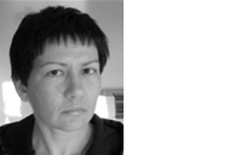
- Name
- Position
- Programmer
- v.laszlo AA tudelft DDD nl
-
-
Veronika Laszlo moved to the Netherlands in 1987 and studied software engineering and artificial intelligence. She was working on many ICT projects for various companies involving tele-communications, networking, databases and web solutions. She joined Hyperbody as a programmer in 2008 and works on protoSPACE projects.
 Facebook/
Facebook/
 Twitter/
Twitter/
 RSS
RSS
